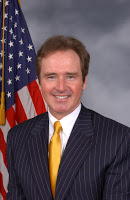
The Comprehensive Addiction and Recovery Act is designed to treat addiction and expand drug take-back programs.
“Approval of this bipartisan legislation will give those struggling with addiction additional access to medical professionals and treatments that can help in the path to recovery,” said Higgins. “While we would have liked to have seen additional resources dedicated to the fight against the opioid epidemic, the new policies set forth through this legislation provide continued momentum in a holistic approach addressing this growing problem.”
Buprenorphine is a drug proven to help wean those addicted to opioids off of harmful substances. Currently over 800,000 physicians can write controlled substance prescriptions, but only about 33,000 can prescribe medication, like buprenorphine, used to treat addiction. Furthermore prescribers of buprenorphine are limited to treating 30 patients in the first year, and up to 100 in year two and beyond.
Last year Congressman Higgins introduced H.R.2536, the TREAT (The Recovery Enhancement for Addiction Treatment) Act, a bill that expands access to treatment by eliminating the patient cap and making qualified Physician Assistants (PA) and Nurse Practitioners (NP) eligible to administer medication-assisted addiction treatment.
Earlier this week Higgins announced actions taken by the Administration that increase the patient cap from 100 to 275 annually. Today’s legislative approval by the House, to extend prescribing rights to Physician Assistants and Nurse Practitioners, further the goals outlined in Higgins’ TREAT Act.
Rep. Frank Pallone, one of the lead negotiators on the Opioid legislation package, was among those citing the particular importance of the provision expanding prescribing authority to PAs and NPs.
The legislation package includes a wide range of policies to address the growing opioid epidemic. Highlights include new comprehensive opioid abuse grant programs to support:
- the availability of and training for naloxone and other overdose reversal drugs,
- alternatives to incarceration including drug and veteran treatment courts,
- physician education,
- expansion of drug take-back programs,
- flexibility to provide for better treatment for pregnant and postpartum women and children.
- The bill also allows for an intensified focus by the National Institutes of Health with respect to advancing a better understanding of pain and the development of effective alternatives to opioids for pain management.
According to a report by the National Institutes of Health released on June 22, between 2001 and 2013, the non-medical use of prescription opioids in the United States has more than doubled. According to the findings, in 2013 nearly 10 million Americans used opioid medications without a prescription or in excess of the prescribed dose.
Get social with All WNY News. Facebook. Twitter. Instagram.
All WNY is made possible thanks to coffee and sleep deprivation.
We appreciate your readership. We like money, too.
